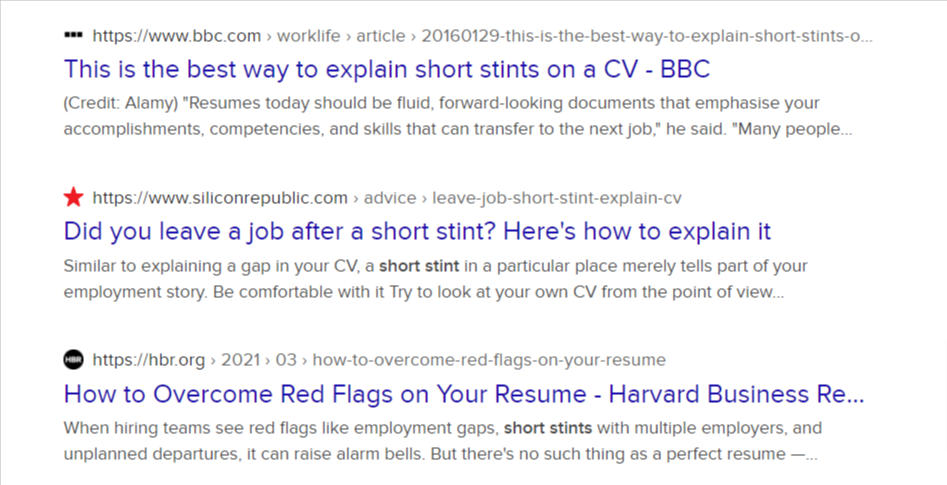Short Stints
I used to be wary about "short stints" - staying less than two years at a company as an employee. I remember saying I needed three years to get at full capacity. It was not much about the tech (it can't be that complicated), more about the landscape (business domain) and/or company structure (in large organization, you can need a couple of years to really know who to ask for what - and have the credit to pull it off).
Bad rep
Internet seems to pretty much agree with the point, with a lot of advice on "how to explain short employment stints" - as if those were something shameful to hide or disguise.

As an aside, no one is telling companies that short employments stints reflect badly on them - it's the usual asymmetry where things that are ok for companies are not ok for candidates - anyway.
The idea from the company/recruiters is that not staying "long enough" at a company make you unreliable.
Meanwhile
I've left my last "long stint" almost three years ago now. During my five years at Bluesquare I barely did anything else - something I felt "came with the job" - I thought that as a CTO you should not have time for much else, and I was feeling overwhelmed most of the time anyway.
Since that time I did only part time missions, most of them shorter than a year - and I think I provided value in pretty much every single one.
What changed
Most of the change is actually the mindset - that it's indeed possible to bring value even before understanding the whole context. Working in small(-ish) companies certainly helps in that regard, as is scoping the work to avoid having to understand everything.
I also saw (in colleague, in me) something impressive changes happening in just a few months - sometimes a few weeks. My current team is in place since just 6 months (less for some people), something I've have trouble believing when I see how far we've got already and how well we function as a team.
On my own side it's about getting value faster, generally thanks to experience - especially the "fitting in" & "finding my value" parts. Having generally very broad goals helps finding areas of quick improvements in the middle of more long terms goals.
As a single developer turned team lead turned CTO in less than a year, I also discovered that you can lead a team as a part time job. It's not a given but good hiring and a led back approach brought a situation that's beneficial to everyone - the company, the team and myself.
Added bonus
A last but important consequence of those part time/short stints is how it make evolve my own relation to work. I've always been quite driven work-wise (and I still am) but splitting my time around different customers and moving on allowed me to separate a bit my value from my (current) job.
In other words, my career/work is "me" - it's not the company I'm working for at any current time. That means understanding that every job/mission is temporary - but they are and assuming the opposite is actually the "weird" opinion.
I've come to talk about my work as my current job - which is a way to express it's not going to last eternally - and that's ok.
Opinions? Let me know on LinkedIn!